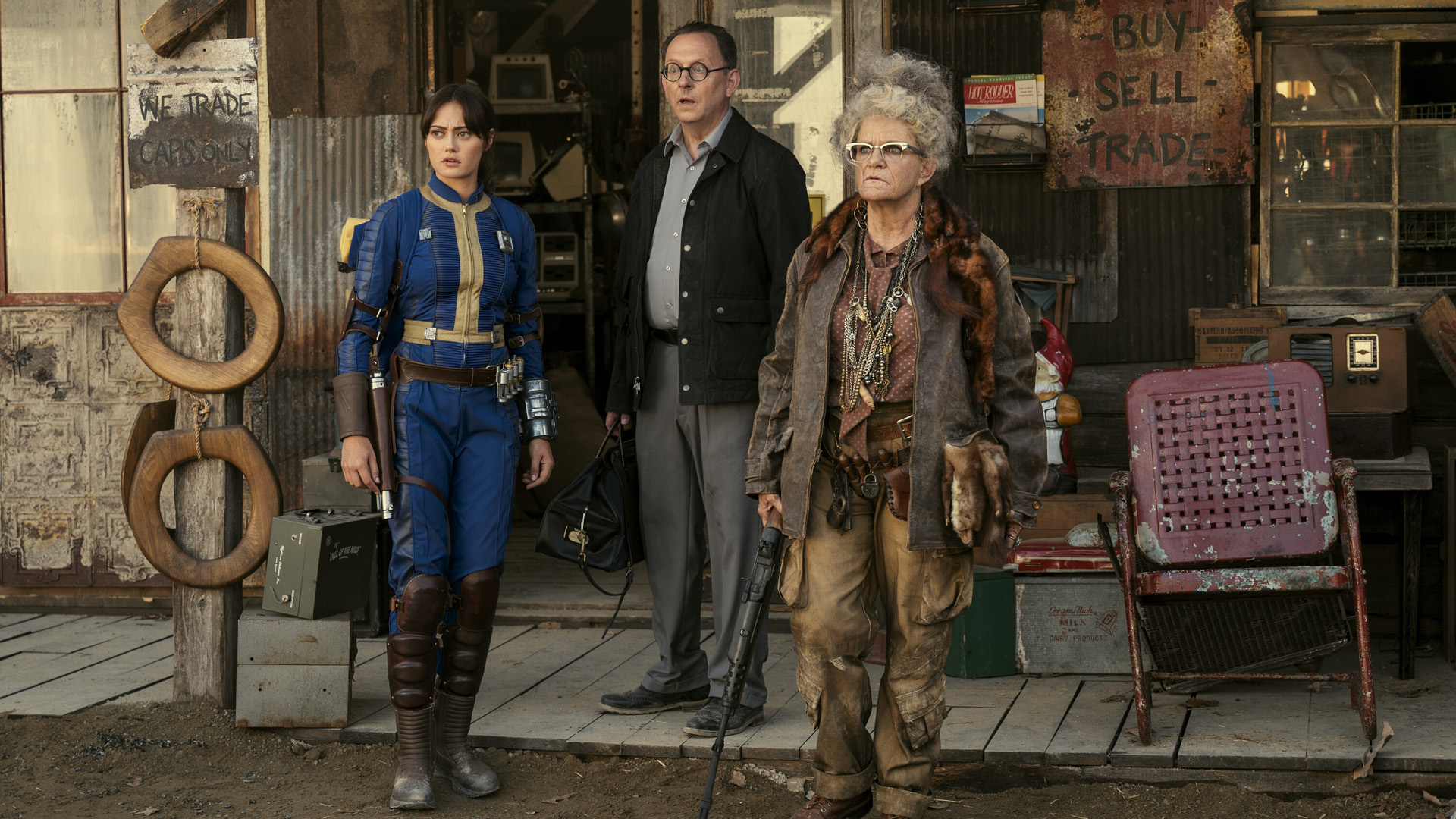
Mild spoilers follow for Prime Video’s Fallout TV series.
The golden age of video game adaptations is upon us. From Netflix’s various animated offerings, including Castlevania and Arcane, and HBO’s The Last of Us (TLoU), to big-screen takes on Sonic and Mario, we’ve recently been treated to some excellent movie and TV adaptations of the world’s most beloved game franchises.
Now, Prime Video is ready to enter the fray with its Fallout TV show, and fans of Bethesda’s multi-genre post-apocalyptic game series will be hoping it isn’t a dud that bombs upon launch.
Having watched the first four episodes, I can confidently say that Fallout is an atomically entertaining watch. Like TLoU on Max, it’s an ambitious, prestige-flavored adaptation that brings one of gaming’s most iconic series to life with a highly satisfying blend of source material devotion and narrative originality. Sure, there’s the odd blemish or two, but they do little to derail another fantastic video game TV adaptation.
War never changes
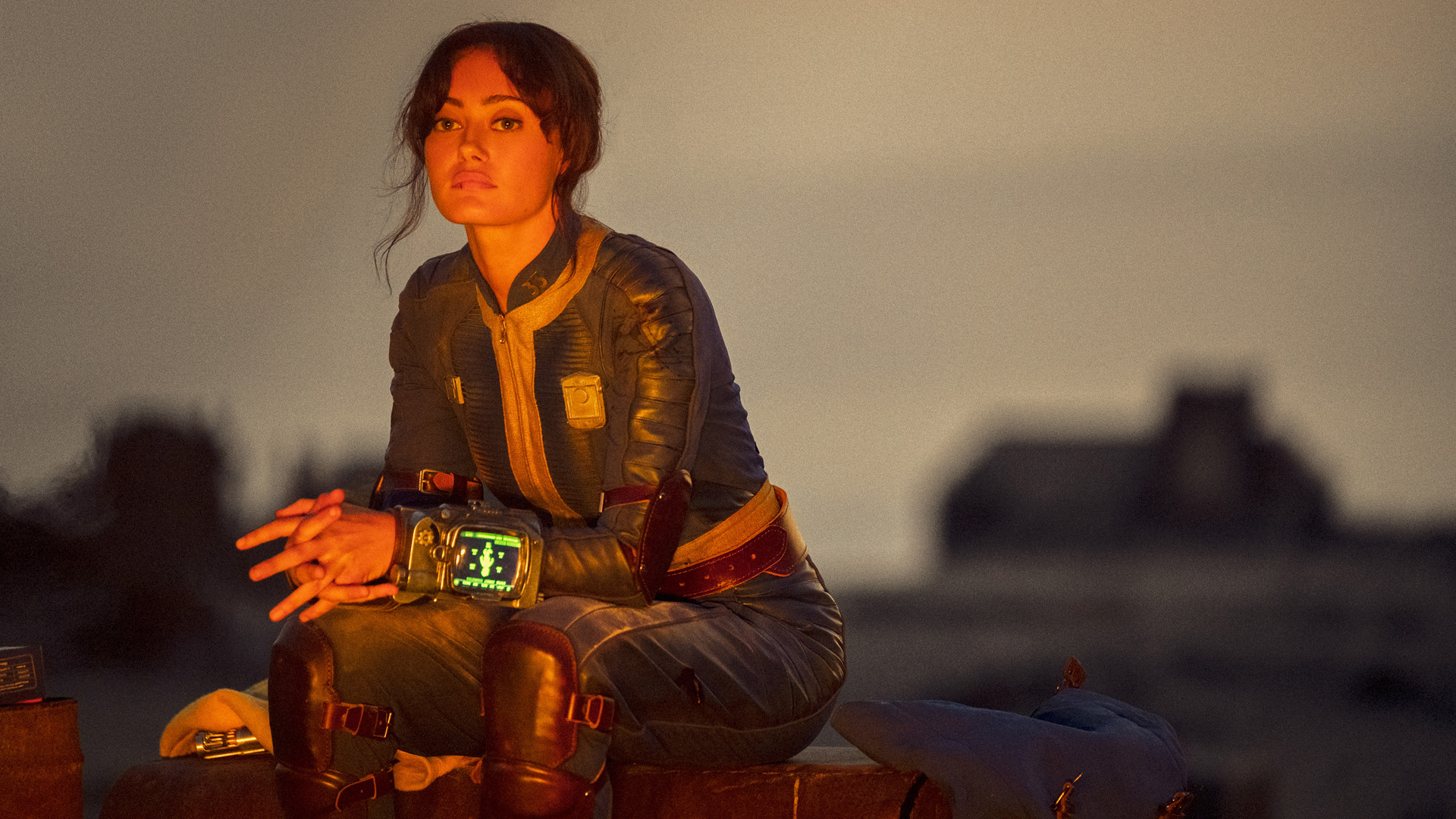
Set in an alternate universe in the year 2296, Fallout takes place 219 years after The Great War – a cataclysmic event that saw the US and China engage in all-out thermonuclear warfare, which killed billions and ended civilization as we know it. Essentially, The Great War is ground zero for the stories depicted in each Fallout game.
However, pockets of humanity survived the nuclear fallout. The richest retreated to underground bunkers, known as Vaults in-universe, that could withstand said destruction. When the time was right (i.e. once surface radiation levels had dropped to safe levels), future generations would re-emerge to rebuild society. Little do those living subterraneously know, though, that remnants of humanity’s poorest also survived on the surface (collectively known as the Wasteland). Those individuals formed new tribes and communities, such as the militarized religious faction known as the Brotherhood of Steel, and they aren’t exactly enamored by the prospect of these 'Vaulties' resurfacing to tell them how to restore order to planet Earth.
The absorbing nature of those dynamics owes much to the talents and charisma of Fallout’s primary actors
Like Bethesda’s playable titles, Amazon’s adaptation is set in this post-nuclear world of haves and have-nots. However, rather than follow the games’ lead and focus on a single protagonist, which people play as, Prime Video’s Fallout follows three main characters whose paths continually cross in pursuit of an item that’s not only of great significance to humanity, but also key to them completing their individual missions.
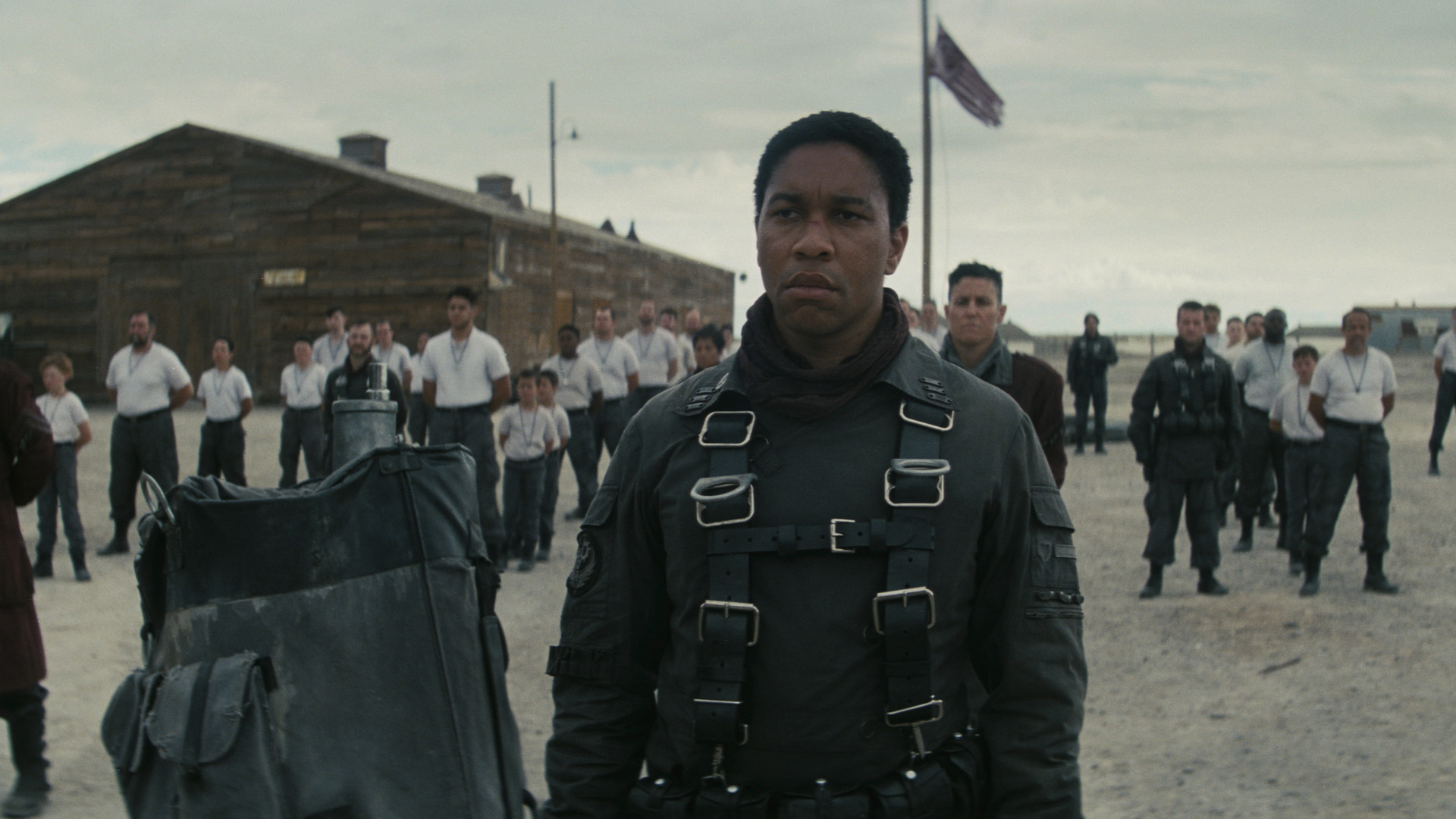
Of the show’s intrepid trio, impressionable Vault-33 dweller Lucy (Ella Purnell), who needs to locate said item to bargain for her father Hank’s (Kyle McLachlan) life after he’s kidnapped by vicious surface-dwelling raiders, is arguably the lead star. Maximus (Aaron Moten), an impatient individual who wants the object to help fuel his ambition of becoming a Brotherhood of Steel Knight, and The Ghoul (Walton Goggins), an enigmatic, centuries-old human-turned-mutant who experienced the world before The Great War, are also integral to the story, though.
This character-based divergence from the games might puzzle established fans who are used to Fallout’s singular protagonists. Diversifying the show’s main character lineup, however, keeps things narratively fresh as we follow their individual journeys and occasional team-ups – the latter of which provides unusually early face-offs between them.
Diversifying the show’s main character lineup keeps things narratively fresh
Most TV shows have a tendency to delay storyline convergence until later episodes, which builds anticipation for the inevitable crossing of paths, but which can also lead to subplots and other plot threads being dragged out. Fallout avoids this by bringing its major players together as early as episode 2 for an R-rated Western stand-off that’s as funny, dramatic, and over-the-top action-wise as the games are, with the ensuing battle faithfully recreating the franchise’s success-based, slow-mo ‘hit chance’ gunshots.
It isn’t the only moment where they interact and engage in buddy cop-style adventures, albeit certain individuals *cough* Lucy *cough* are subjected to such partnerships against their will. Yes, keeping Fallout’s protagonists apart means that there will be fireworks when they inevitably bump into each other, but seeing these characters with diametrically opposed worldviews chew the scenery makes for explosively fun dynamics, and I found myself longing for more humor- and drama-filled co-operation between them throughout the episodes I watched.
Into the wild blue yonder

The absorbing nature of those dynamics owes much to the talents and charisma of Fallout’s primary actors. Purnell imbues the idealistic and naive, yet surprisingly resilient, Lucy with panache and instant likeability. Equally, she captures the wide-eyed nature of the cloistered Vault dweller seeing the post-nuclear, horror-strewn world for the first time with aplomb. Lucy’s childlike innocence and worldly inexperience make for plenty of awkward and darkly humorous moments as she traverses the surface world, which put Purnell’s surprisingly solid comedic timing on full show.
Lucy isn’t the only Fallout character who embarks on a coming-of-age-style journey. Lucy and Maximus’ experiences couldn’t be more stark (he’s a surface-dweller who’s had to feed on scraps throughout his entire life), but he’s as equally unworldly as his counterpart. However, unlike Lucy, there’s a ruthlessness to his power-hungry, indignant persona that’s captured with brooding intent by Moten. Still, given Maximus’ lifelong struggles and the gawky charm that Moten instills in Maximus, you can’t help but root for him.
Goggins is delightful as the morally ambiguous and merciless Ghoul
Goggins is delightful as the morally ambiguous and merciless Ghoul, too, but his gleeful and humorously menacing portrayal of the calculating and seemingly callous gunslinger isn’t the full extent of his role. The Invincible star and Marvel alumnus is on dual acting duties here, as he also plays Cooper Howard, aka The Ghoul’s former human form. A 21st century big-screen star, Howard’s intriguing ties to Vault-Tec, the megacorporation behind the creation of the subterranean nuclear shelters, are explored through flashbacks that are drip fed through Fallout’s primary narrative. Not only do they provide extra context to Howard’s backstory, his ties to Vault-Tec's Vault Boy mascot, and The Ghoul’s present-day motivations, but they also reveal what the world was like prior to humanity’s self-inflicted near-total annihilation.
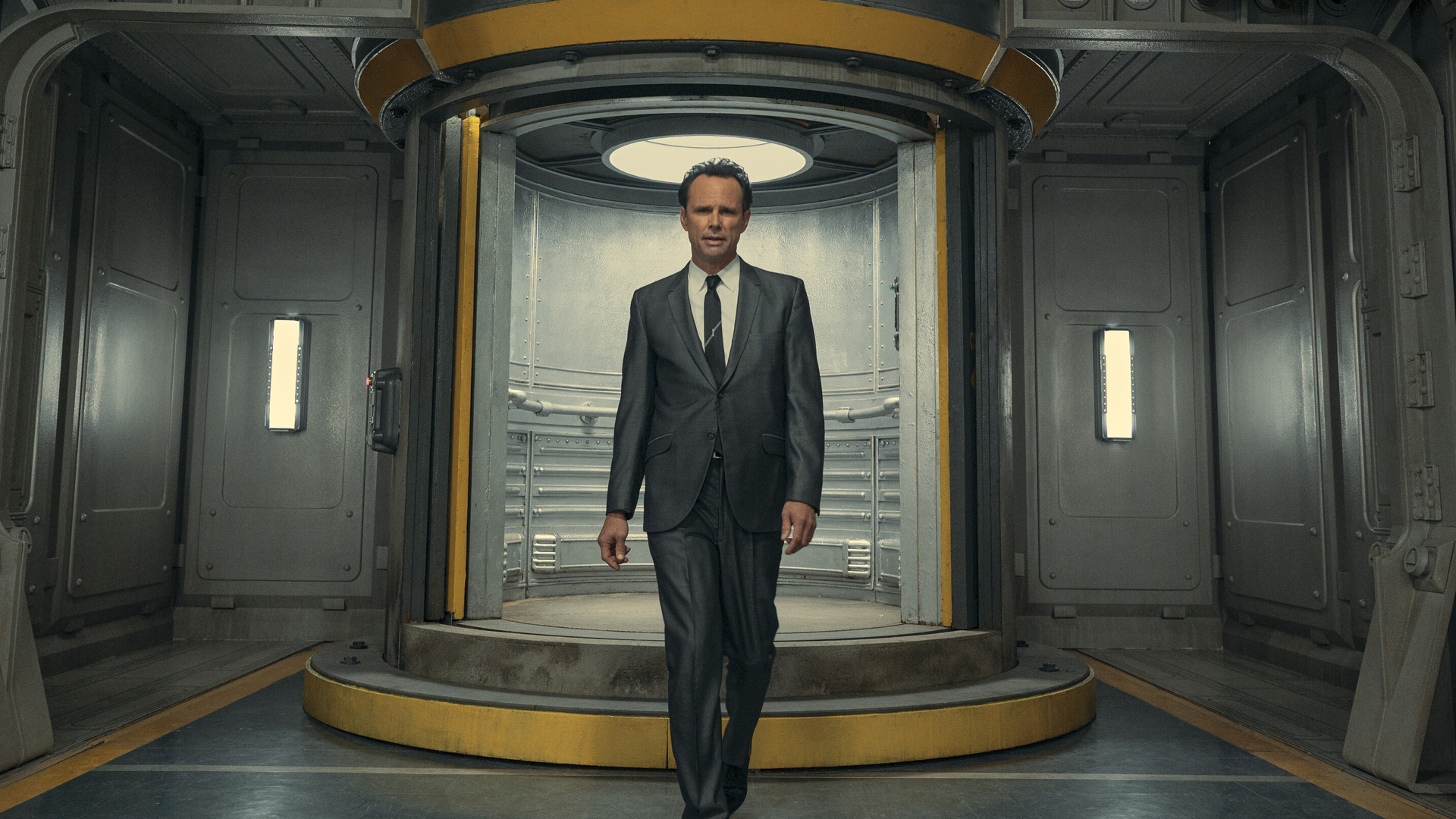
These glimpses into the past – the “one thing we could never do” in the games, according to one of the show’s producers and Bethesda boss Todd Howard – provide a tantalizing but terrifying opportunity to show the blind panic and futility of the moment that The Great War began, too. And let me tell you: thanks to Goggins’ emotionally rich, dread-infused performance – one that’ll be immediately relatable to anyone with kids – it’s the most beautifully somber opening to a TV series I’ve seen in a while.
Fallout doesn’t just rely on its main trio to provide moments of levity and melodrama at its hilariously grim party at the end of the world. Hank and Lucy’s brother Norm (Moises Arias), plus the eccentric individuals that populate the show’s dystopian Los Angeles, including the mysterious and slightly creepy Wilzig (Michael Emerson), provide sci-fi-laced intrigue and narrative thrust aplenty to its various subplots.
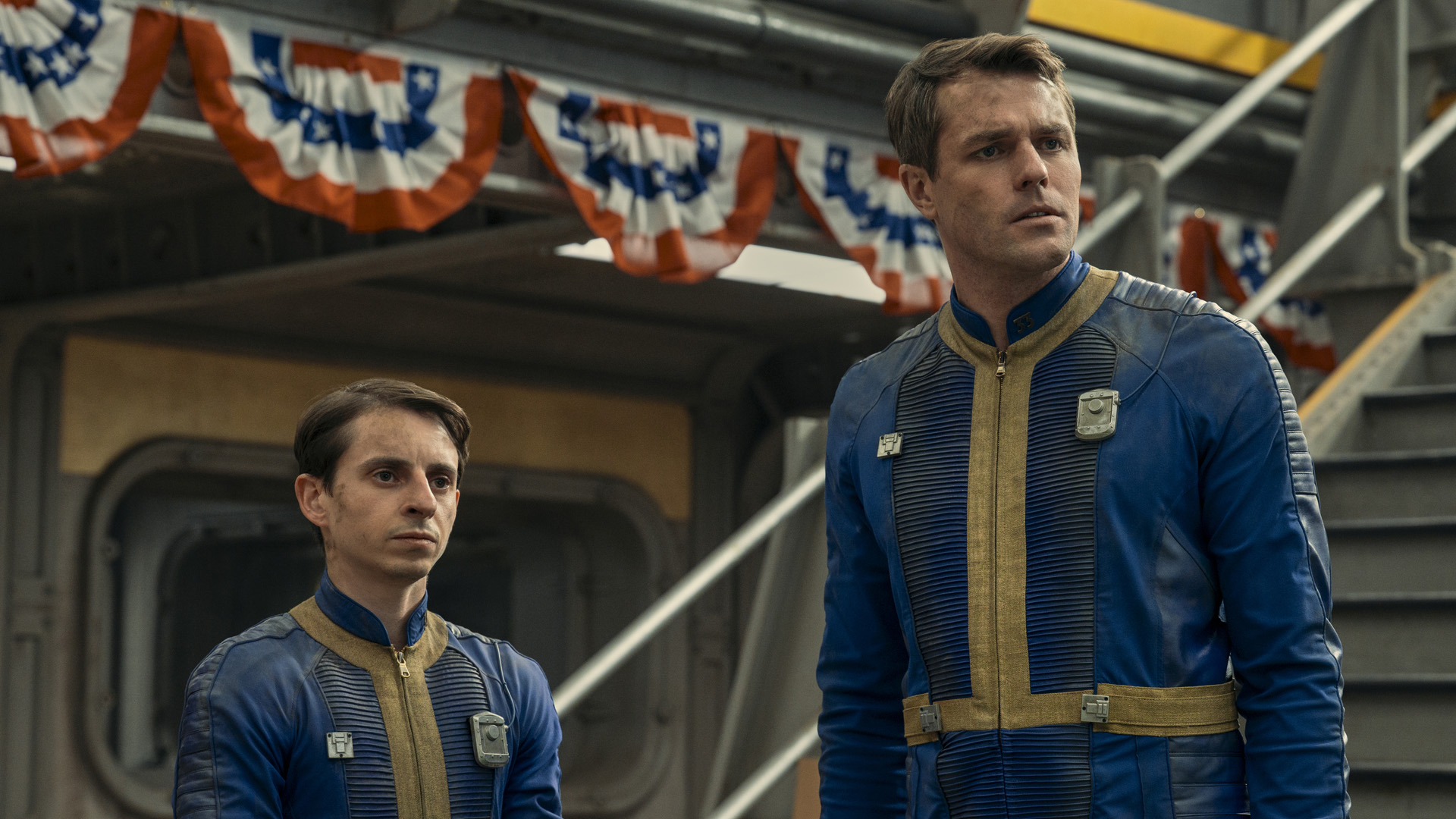
That said, some story threads are haphazard in their execution. The post-Lucy Vault 33 narrative, for instance, is hamstrung by clumsy dialog, repetitive plot beats, and lackadaisical pacing. It eventually finds its feet as a semi-interesting mystery-thriller that sees Norm and fellow ‘Vaultie’ Chet (Dave Register) explore the nearby abandoned Vault-32 for… well, that’s getting into major spoiler territory. Still, it’s a story arc that failed to capture my imagination in the same way as those involving Fallout’s protagonists.
Franchise dedication
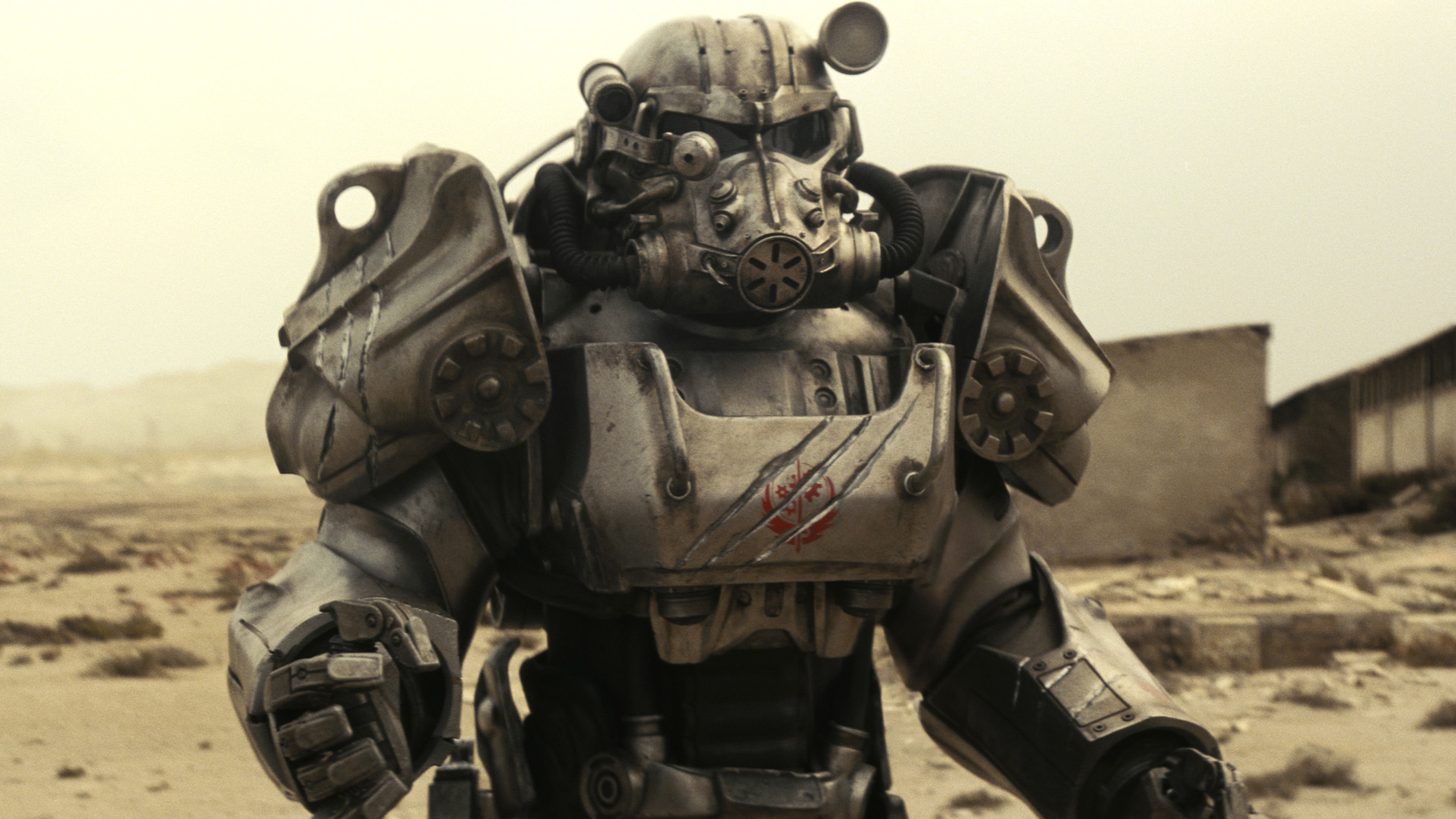
No good video game adaptation is complete without honoring its source material. Thankfully, Fallout is as stuffed with homages and callbacks to Bethesda’s popular games as it can be.
I’m not exaggerating when I say it’s packed to the rafters with Easter eggs, either. From the immediately recognizable Nuka-Cola bottles, Vault Boy bobbleheads, and hugely impressive real-life Vault doors, to easy-to-miss inclusions like the Junk Jet and Robco Protectron, no stone has been left unturned in this show’s pursuit of authenticity and fan service.
There’s a ruthlessness to Maximus' power-hungry, indignant persona that’s captured with brooding intent by Moten
That’s just scratching the surface of Fallout’s roster of trinkets, weaponry, and other in-universe tidbits. There are monsters galore (the gulper, yao guai, and radroaches to name just three), nuanced references to standalone games (see if you can spot the Westside and Dom Pedro town tributes), and enough Fallout 4-specific Easter eggs (Grognak the Barbarian! The Commonwealth! Super Duper Mart!) to look out for. Heck, there’s even an acknowledgment of Fallout 4’s faithful canine companion Dogmeat, albeit this very good boy is called CX-404 in Amazon’s adaptation.
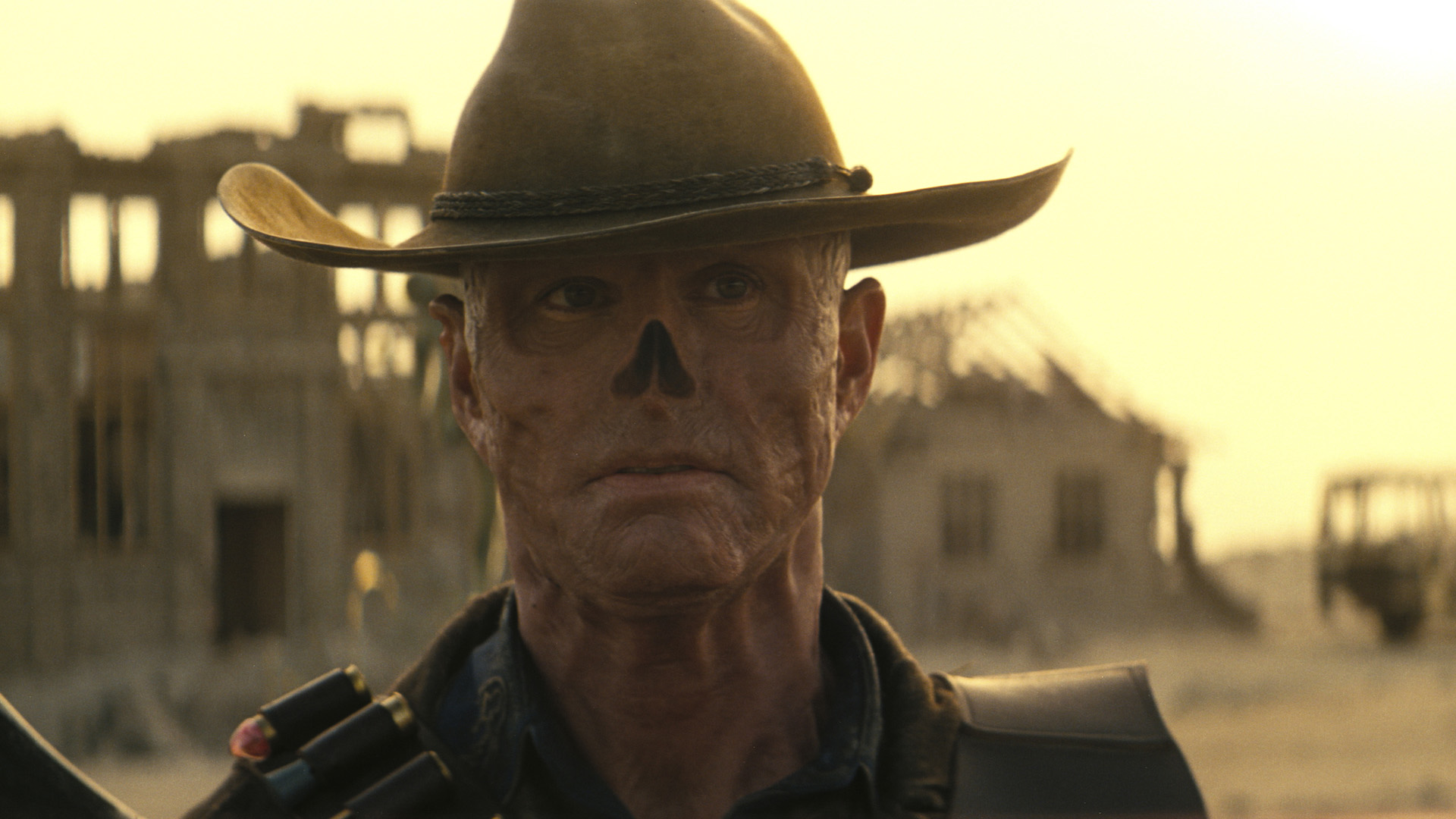
Fallout is amusingly self-referential in its use of other gaming staples, too. Its various, interwoven story threads uncannily resemble the gameplay mechanic of undertaking optional side quests and completing bitesize, multi-strand missions in order to achieve a larger goal. Indeed, Lucy, The Ghoul, and Maximus’ attempts to track down the previously mentioned MacGuffin to complete their individual main objectives serve as proof of that. An episode 3 quip from The Ghoul even references this gaming construct in the most meta way possible, when he sarcastically tells Lucy that “thou shalt get sidetracked by b******t every goddamn time”. Hey, Amazon’s take on the Fallout games wouldn’t be fully respectful if it didn’t ironically satirize them.
Speaking of the franchise’s penchant for humor, Fallout doesn’t skimp on the games' wacky, deadpan, and macabre comedic tonality. As demonstrated by the giant, smirk-inducing ‘The End’ title card that greeted me mere seconds into its premiere, it wastes no time in perfecting the franchise’s signature humor. Thanks to Howard and Nolan’s input, as well as the sharp and witty writing of co-showrunner Graham Wagner (Silicon Valley, The Office US), who wrote the series alongside Captain Marvel scribe Geneva Robertson-Dworet, Fallout dives headfirst into absurdist, satirical, whimsical territory with one-liners, delightfully awkward encounters, and violently goofy spectacle that had me sniggering and guffawing throughout.
My verdict
Prime Video’s Fallout confidently and purposefully tackles Bethesda’s genre-bending, tonally diverse, and dense source material with hearty finesse and a highly satisfying authenticity that does justice to the franchise’s vast fictional universe. By staying true to the ambitious and large-scale world-building that Bethesda has perfected over the past 27 years, as well as telling a brand-new story in the fan-favorite series, it finds a near-faultless balance between the old and new that pays off handsomely.
Fallout fanatics, myself included, aren’t the only ones who’ll find lots to enjoy here. Fans of dystopia-set stories, such as Mad Max, The Walking Dead, and another of Nolan’s popular sci-fi works in Westworld will savor Fallout’s epic and sweeping narrative, pulsating and gory action (of which there is plenty, albeit with the odd lightweight and/or labored set-piece), and multi-genre appeal.
Without wanting to sound hyperbolic, I think Fallout might be one of the best Prime Video shows ever made. I can’t overstate how much I enjoyed it – and, with Nolan suggesting that the series’ creative team has “very cool” plans in mind for its rumored second season, the fact that I’m desperate to return to the Wasteland, whenever that might be, speaks volumes of its outstanding quality. Don’t be surprised if Fallout’s ‘Everyone liked that’ meme emerges from its own vault when, well, everyone inevitably falls in love with Amazon’s TV adaptation.
Fallout’s eight-episode first season debuts in full exclusively on Prime Video tonight (Wednesday, April 10) in the US, and Thursday, April 11 in the UK and Australia.







